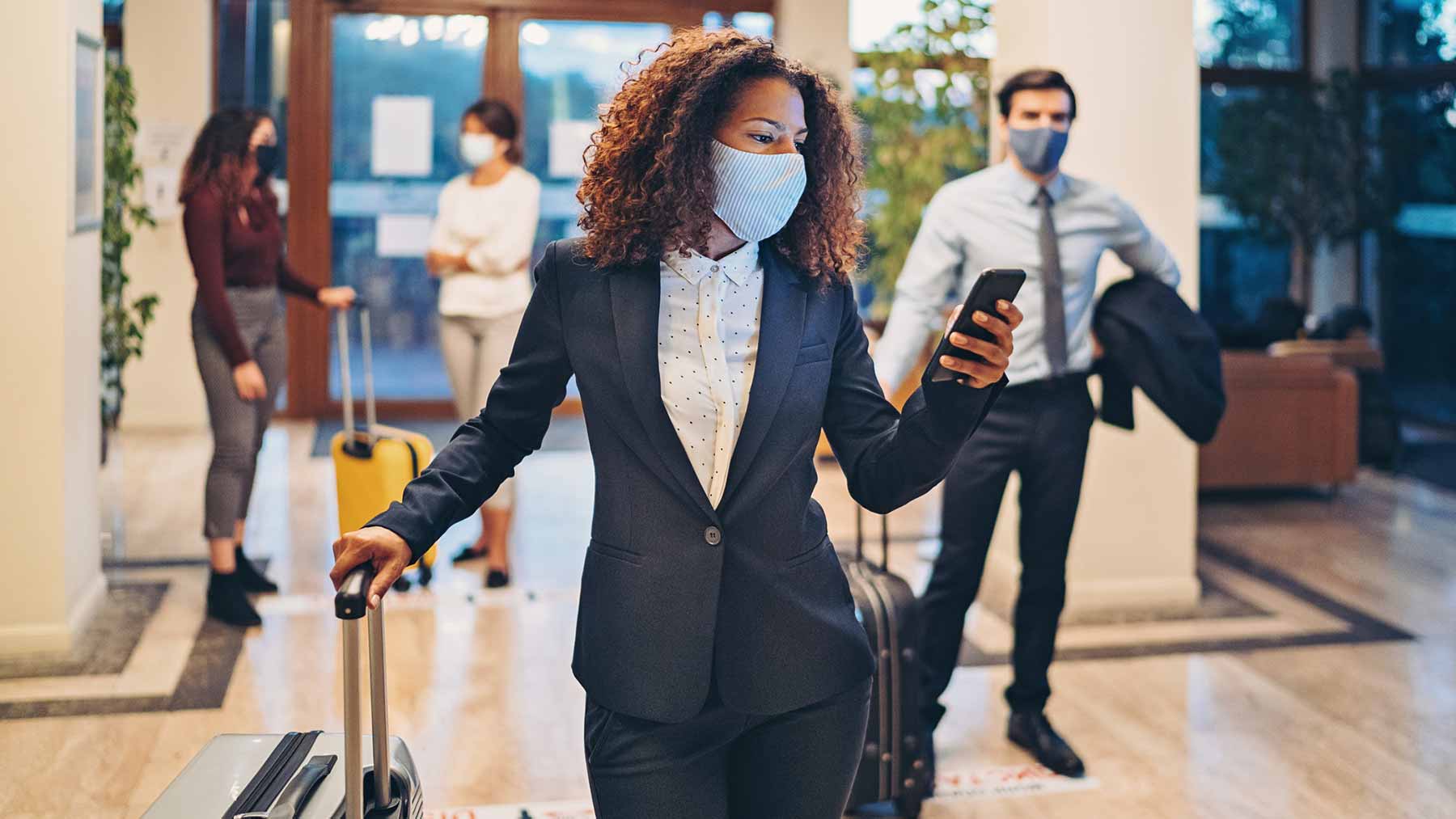Mask guidance is changing, is it safe to take it off?

Editor’s note: As what we know about COVID-19 evolves, so could the information contained in this story. Find our most recent COVID-19 blog posts here, and learn the latest in COVID-19 prevention at the Centers for Disease Control and Prevention.
For those fully vaccinated against COVID-19, the Centers for Disease Control and Prevention say it’s safe to resume doing the things you did before the pandemic started. That means you don’t have to wear a mask, stay 6 feet apart or stay home all the time. This is welcome news after more than a year of unprecedented isolation to prevent the spread of disease.
But there are some exceptions. These changes don’t apply to health care settings such as hospitals and doctor’s offices as well as schools. You are still required to wear a mask in airports and on planes, buses, trains, and other forms of public transportation. Businesses may ask you to mask up too.
To help quell confusion, here are answers to a few of the mask guidance questions I often get:
What does it mean to be fully vaccinated?
You’re fully vaccinated two weeks after your second dose of the Moderna or Pfizer COVID-19 vaccines or two weeks after a single dose of the Johnson & Johnson Janssen COVID-19 vaccine.
I’m vaccinated but could a chronic health issue put me at risk of catching COVID-19 infection?
The vaccines are very effective at keeping you from catching COVID-19 and from passing it on to your family, friends and coworkers. Generally, vaccinated people who get infected with COVID tend to have mild symptoms and are much less likely to need hospitalization. That said, there are some people, especially those with multiple risk factors for severe COVID, leukemia, or those taking chronic immune suppression for autoimmune disease or organ transplant, who may not produce sufficient antibodies. The vaccines still help these people, but not as effectively as people with a normal immune response. If you’ve been told by your doctor that you’re at high risk for COVID infection even after vaccination, you should continue to wear a mask in high risk situations (generally indoors).
I’m not vaccinated but I don’t want to wear a mask anymore?
As we see the rates of COVID-19 infection fall across the country, most people are protected due to vaccination or a previous infection. If you have not been vaccinated, your risk remains fairly high for contracting a COVID-19 infection. In some areas of the country, the rate of COVID-19 in unvaccinated people is as high as it was earlier this spring. Unvaccinated people should continue to follow the precautions including wearing a mask, staying 6 feet apart and avoiding crowded places.
Should I wear a mask during cold and flu season?
COVID-19 isn’t the only dangerous respiratory infection. Influenza kills tens of thousands of people every year. Due to mask use during the height of the pandemic, we had very little influenza in the community and few, if any deaths. So it seems as if we’ve found the secret to keeping everyone healthy during the winter months. We all need to take responsibility to keep each other healthy next winter. Even if you have the flu shot, stay home if you feel sick. If your kids are sick, keep them home from school. If you’re sick and must go out, wear a mask. If you’re not sure if your symptoms are due to an infection, wear a mask.
What if I’m not ready to stop wearing a mask?
You should do whatever is comfortable for you. If you feel more secure wearing a mask, that’s fine. If you’re asked to wear a mask by a health care facility, business, school or while using public transportation, then you should wear a mask.
Consider encouraging your friends and family to be vaccinated so your chances of getting COVID-19 from them is very low.
The risk of COVID-19 infection around people while outside is extremely low. So if you’re healthy and around other vaccinated people in low risk settings, such as small groups or outside, you don’t need a mask.
Are there any risks associated with not wearing a mask around unvaccinated people?
The COVID-19 vaccines are very good, but no vaccine is 100% effective. The more you’re in close proximity with unvaccinated people, the higher the risk of infection. Generally, this would be in settings of close proximity with poor air circulation. Walking by someone outside or even briefly in the grocery store would be low risk. Sitting near someone for hours or in an enclosed space would be higher risk. In high risk settings, you may want to consider wearing a mask.
Matthew Exline is a pulmonologist and medical director of the medical intensive care unit at The Ohio State University Wexner Medical Center and professor of internal medicine at The Ohio State University College of Medicine.




